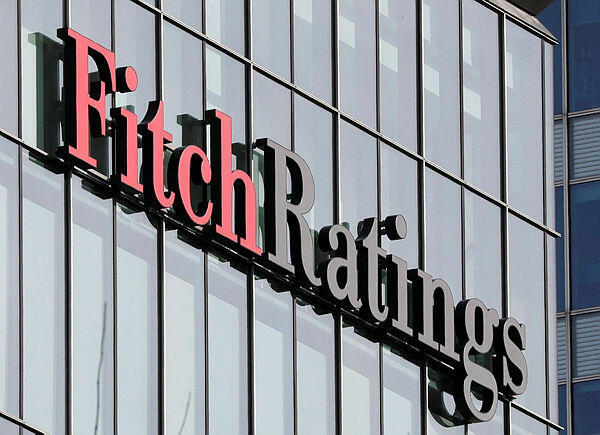Like Moody's, Fitch's economic analysts have decided to downgrade Israel's credit rating given Israel's current war-time circumstances, unless they can be persuaded at the last moment in meetings with senior economic officials to postpone the downgrade.
More stories:
At the end of October, the agency announced that the A1 rating would remain in effect for the time being, but added a negative outlook for the future. Fitch's detailed report is expected to be released within three weeks following the conclusion of the economic agency's meetings with senior Israeli officials.
4 View gallery


Israel's General Accountant Yali Rothenberg meets with Fitch Ratings officials
(Photo: Reuters)
Israel's General Accountant Yali Rothenberg arrived in London on Wednesday to hold meetings with the agency's economists in a special effort to convince the agency's economists to refrain from the downgrade at this stage.
Rothenberg is expected to explain to Fitch Ratings that within two weeks a new state budget for 2024 will be approved in the Knesset, including a series of steps to reduce the budget deficit already this year and at the beginning of 2025, including raising VAT and health tax, imposing a high tax on major banks in Israel, and significant budget cuts.
In their soon-to-be-released report, Fitch economists are expected to warn of the noticeable increase from 59% to 68% in Israel's debt-GDP ratio - due to the increased security expenditures following the war imposed on Israel, to be decided by a public committee for the coming years, and will include criticism of the low employment rate in the ultra-Orthodox (men) and Arab (women) sectors, which will complicate the management of the Israeli economy in the future.
The third-largest rating agency, S&P Global Ratings, is also expected to publish a negative report on Israel's economy in the coming weeks and may also decide to downgrade Israel's credit rating.
No solution for the day after in Gaza and escalation in the north
Moody's recently announced it would downgrade Israel's credit rating from 1A to 2A for the first time in Israel's history and the addition of a "negative forecast" to the downgrade could lead to another downgrade if Israel's security, geopolitical and economic situation deteriorates in the future due to the ongoing war in Gaza or the opening of another front in the north.
Moody's downgrade is expected to increase interest rates for loans that the state is forced to take due to the prolonged war in the south and the tense situation in the north. It will also increase interest rates for Israeli companies and households. The downgrade is likely to temporarily lead to a decline in stock prices on the Tel Aviv Stock Exchange and weaken the shekel against foreign currencies.
Moody's economists estimate that the broad implications of the current confrontation with Hamas, both during and after its conclusion, significantly increase political risks in the State of Israel, weaken the legislative and executive authority, namely the government, and significantly impair the country's budgetary resilience in the foreseeable future.
4 View gallery


Finance Minister Bezalel Smotrich and Prime Minister Benjamin Netanyahu
(Photo: Haim Tzach, Ltd)
Since receiving its first credit rating just before the turn of the century, Israel's rating has consistently improved and never declined until now. Throughout its 75-year history, the State of Israel has always met its loan repayment obligations on time and adhered to the terms established when the loans were granted.



